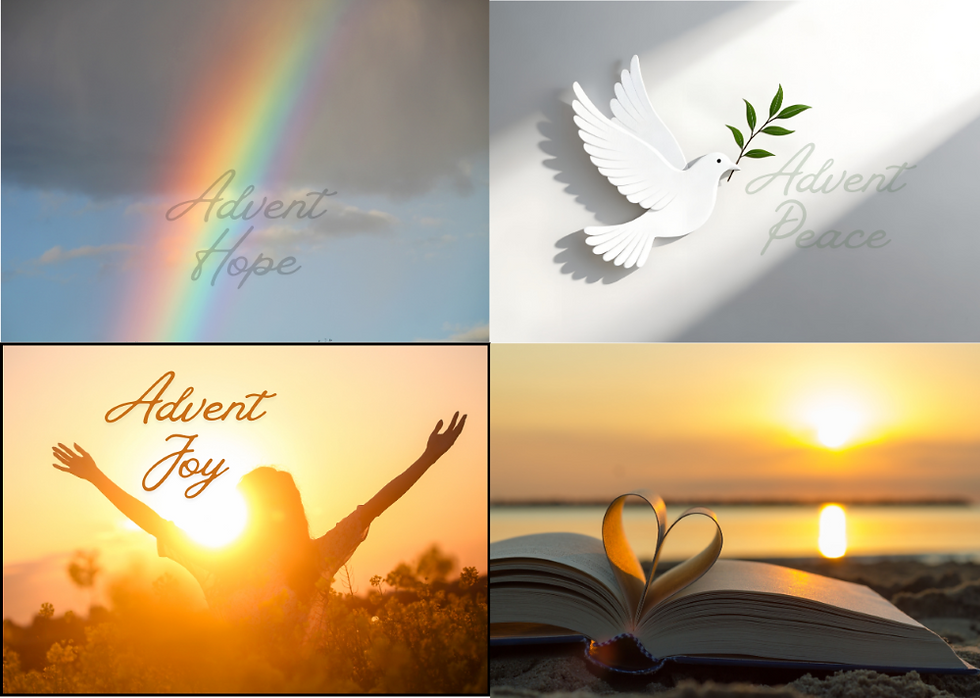Learning to breathe
- Jon Timms

- Jan 25, 2024
- 3 min read
Before beginning to read these words, I would like to encourage you to go back and read Simon’s reflection from last week if you haven’t done so already.

We’re starting off the year immersing in the reality of Christ filling our world with His presence, even the daily ‘coming-and-going’ routines of our lives, those seemingly humdrum moments. They are often the forgotten moments in the day, the ‘fillers’ between the real action.
The church I help to lead is part of the 24-7 Prayer movement, whose core values focus on prayer, mission and justice. In a meeting of global leaders this past week, mission was described like this, ‘We are missional, breathing in Christ as we pray; breathing out Christ as we engage with the world around us.’ What a beautiful picture….or maybe it’s more than that, maybe it’s a new way of seeing and a new way of being, maybe we’re all just learning to breathe again.
Nicodemus struggled with the concept of new birth in John 3, “can one enter a second time into the mother’s womb and be born?” Learning to breathe again may involve similar confusion for us as we contemplate and seek to live out this ‘liturgy of the ordinary’. We breathe every moment of every day, there is, literally, nothing more mundane, in fact it’s so mundane we don’t even give it a care. I wonder if something as simple as learning to breathe once again could hold some transformative element to our lives and also to our missional approach.
The importance of intentional breath-work is becoming more prevalent in our consciousness in recent years. Slowing down our breathing tells a nervous system that we are safe, our primal self feels that there is no danger when the heart rate is slowed down and we can breathe deeply and easily. It’s how we often begin times of prayer and contemplation, a time to settle, to shake off all that hinders and acknowledge the sacredness of a moment and the presence of Jesus.
Through scripture Jesus invites us to continuously draw our life from Him. When we thirst, we come to Him for living water, which in turn will flow from us; He is the vine and we are the branches, drawing life-giving nutrients from Him to sustain us. He calls Himself the Bread of Life, and He is called the author of life by Peter in Acts 3.
These ideas all come together to create in us a portrait of a people who receive everything they need for their survival from Jesus. Ideas and invitations, when practiced, then become realities. Perhaps we may even realise the need to finally admit our full reliance on Jesus, to render the ‘self-life’ null and void. Consider the fact that just a few minutes without breathing will be the end of us. Learning to breathe in Christ takes us into new depths of meaning and leaning on Him for all we need. We need Christ like we need air.
This begins in the spaces of prayer, and continues at the sink doing the dishes and into a greater degree of noticing, noticing that all life is sacred and filled with His presence. Think how much better if feels to breathe deeply in the countryside or by the sea after a long day in the city, surrounded by fumes and noise. Maybe learning to breathe in Christ would have similar effect.
Whether we like it or not, the life within us spills out, what is in our hearts will surface eventually. When Jesus is allowed to fill our life and heart, we are able to breathe Him out. Then mission becomes more of a natural overflow rather than a solely a measured activity where we become overly concerned with outcomes. We are missional is like saying we are human, it's just part of who we are. A people who breathe out Christ; Christ’s love into our homes, to our spouses, children and grandchildren; breathing Christ into the neighbourhood, showing kindness to those we encounter; breathing Christ’s love into the community by loving unconditionally; breathing Christ’s love into our churches by accepting and welcoming all who come to the table; breathing Christ’s love out to the world with ease…… all the while remembering the need to breathe IN deeply once again, returning to the Source of Life.
Jon Timms Director: Scotland and Northern England



Comments